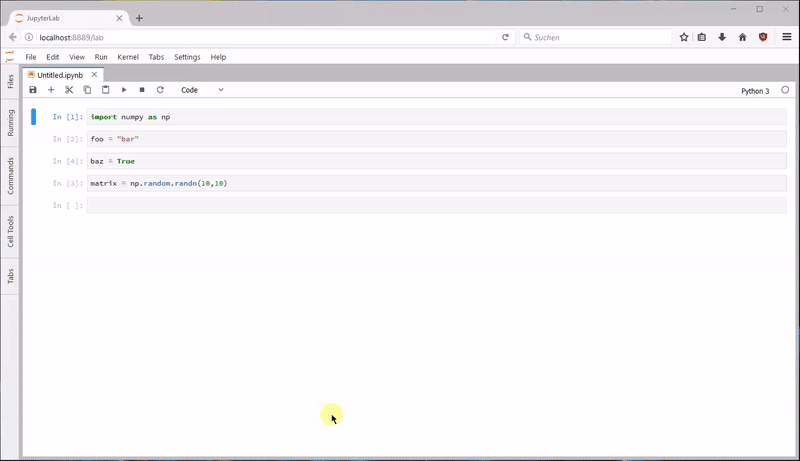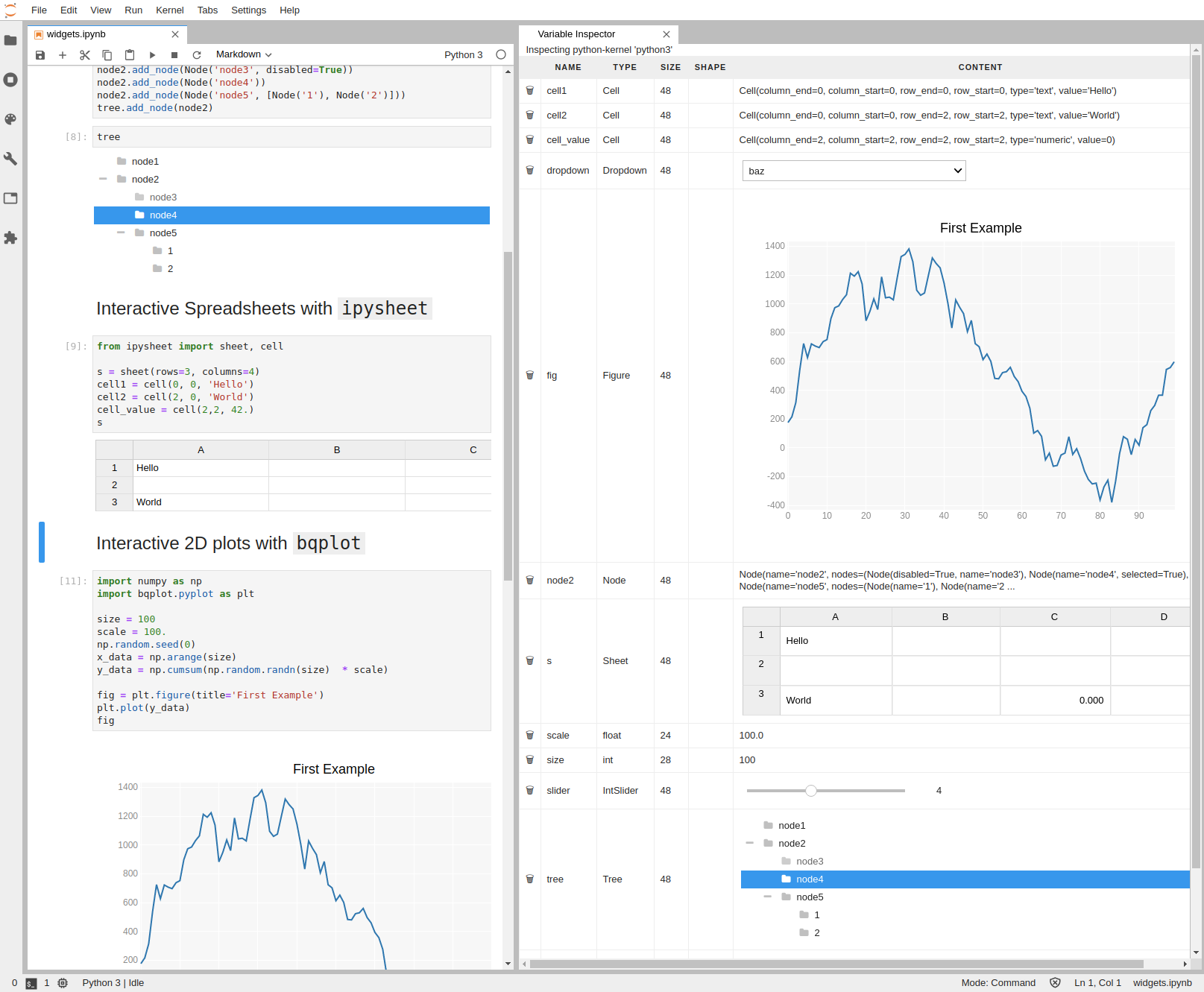jupyterlab_variableinspector
Jupyterlab extension that shows currently used variables and their values.
Contributions in any form are welcome!
Features
- Allows inspection of variables for both consoles and notebooks.
- Allows inspection of matrices in a datagrid-viewer. This might not work for large matrices.
- Allows an inline and interactive inspection of Jupyter Widgets.
Supported Languages
- This extension is currently targets
pythonas a main language but also supports the following languages with different levels of feature completenessRscalavia the almond kernel
How it Works
In order to allow variable inspection, all content that is displayed first need to be sent from the kernel to the front end.
Therefore, opening large data frames with the datagrid viewer can dramatically increase your occupied memory and significantly slow down your browser.
Use at your own risk.
Requirements
- JupyterLab >= 3.0
Requirements for python functionality
pandasandnumpyare required to enable matrix inspection.pysparkfor spark support.tensorflowandkerasto allow inspection of tf objects.torchfor PyTorch support.
Requirements for R functionality
- The
reprlibrary.
Requirements for ipywidgets functionality
The variable inspector can also display Jupyter interactive widgets:
The requirements for this functionality are:
ipywidgets- Support for widgets in JupyterLab:
jupyter labextension install @jupyter-widgets/jupyterlab-manager
Install
NOTE: The main way to install this extension is via pip as described below.
pip install lckr-jupyterlab-variableinspectorAlternatively, one can install the extension from npmjs via:
jupyter labextension install @lckr/jupyterlab_variableinspectoror via the extension manager that comes built-in with Jupyterlab
Contributing
Development install
Note: You will need NodeJS to build the extension package.
The jlpm command is JupyterLab's pinned version of
yarn that is installed with JupyterLab. You may use
yarn or npm in lieu of jlpm below.
# Clone the repo to your local environment
# Change directory to the lckr_jupyterlab_variableinspector directory
# Install package in development mode
pip install -e .
# Link your development version of the extension with JupyterLab
jupyter labextension develop . --overwrite
# Rebuild extension Typescript source after making changes
jlpm run buildYou can watch the source directory and run JupyterLab at the same time in different terminals to watch for changes in the extension's source and automatically rebuild the extension.
# Watch the source directory in one terminal, automatically rebuilding when needed
jlpm run watch
# Run JupyterLab in another terminal
jupyter labWith the watch command running, every saved change will immediately be built locally and available in your running JupyterLab. Refresh JupyterLab to load the change in your browser (you may need to wait several seconds for the extension to be rebuilt).
By default, the jlpm run build command generates the source maps for this extension to make it easier to debug using the browser dev tools. To also generate source maps for the JupyterLab core extensions, you can run the following command:
jupyter lab build --minimize=FalseUninstall
pip uninstall lckr_jupyterlab_variableinspector


